Shabbat-O-Gram
Shabbat Shalom
The season of change begins in earnest this weekend, with the confluence of Labor Day, the beginning of September and the beginning of the month of soul searching, the final month of the Jewish calendar, Elul. On a personal note, my mother's unveiling will also take place this weekend, as the year of mourning begins to draw to a conclusion.
Looking ahead for a moment, don't forget our annual Barechu and Barbecue is next Friday at 5:30, with services to follow (led by Katie Kaplan and myself, with musical guest Kobi Hayon)) at about 6:45. And we are thrilled that not only will Unorthodox, the most poplar Jewish podcast in the universe, be doing a live taping here on September 19, but that the guests will be Rabbi Joseph Telushkin, renowned spiritual leader and author, and Farooq Kathwari, co-chair of the Muslim-Jewish Advisory Council. Please register here and plan to come early - a huge crowd is expected.
Join us for services this evening at 7:30. Katie Kaplan will be joining me, along with musician Barbara Orwick, whom we had the pleasure of meeting for the first time last weekend. A focus tonight will be on this time of transition, the pilgrimage we are taking take from yesterday to tomorrow, and the circle of the seasons.
On Shabbat morning, as we celebrate Rosh Hodesh Elul, our discussion will revolve around Maimonides' Laws of Repentance and how they match up with his Laws of Character. The great sage lived nine centuries ago, and yet the questions he raises are similar to questions we ask today. Are we the product of choices or our disposition? Are we judged by actions only, or by intent? Should I focus simply on trying to stop doing angry things, or should I focus on stopping being an angry guy? (Just kidding, I'm relatively not-so-angry).
The portion of Re'eh lends itself to this conversation, since it focuses on the choices that we make and informs us -
| כו רְאֵה, אָנֹכִי נֹתֵן לִפְנֵיכֶם--הַיּוֹם: בְּרָכָה, וּקְלָלָה. | 26 Behold, I set before you this day a blessing and a curse: |
- imploring us to choose the path of blessing.
And it through choosing that path that we can transform our world, echoing the words of the famous 19th century poem Ode, (The Music Makers) by Arthur O'Shaughnessy:
We, in the ages lying
In the buried past of the earth,
Built Nineveh with our sighing,
And Babel itself with our mirth;
And o'erthrew them with prophesying
To the old of the new world's worth;
For each age is a dream that is dying,
Or one that is coming to birth.
Sarah Cohen, z'l - the Matriach of Kochi
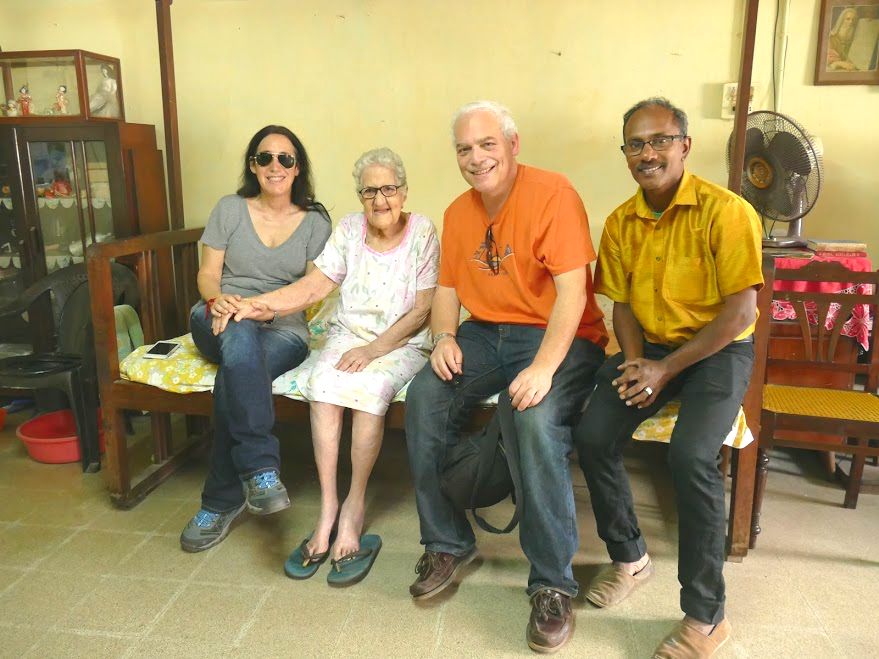
As our season of renewal approaches, a tribute to an extraordinary woman who passed away a few hours ago. Sarah Cohen was 96. The video below was taken by me when I visited Sarah a year and a half ago in her embroidery shop in Kochi, India, where she embroidered kippot. She was chanting Psalms from her siddur, as she did daily, using a melody that is, to my knowledge, unique to her community. Sarah was the matriarch of that city's tiny but very important and historic Jewish community. Every morning, she enjoyed a range of Kerala and Jewish dishes (dosa, idli, challah bread) and then spent the majority of her day sitting by the window, singing prayers and people-watching. She loved to meet Jews visiting from around the world, and I was privileged to have met her. Imagine, being one of just a dozen or so Jews remaining in her community - living in a country with 1.339 billion people. Yet she was honored and proudly welcomed the world to "Jew Town" as her section of Kochi is known. She was once visited by British Royalty and a visit to Sarah has was even rated (highly) by Trip Advisor!
In a 2007 profile in the Washington Post, Cohen explained that she is a part of a dying tradition that will probably no longer exist in 10 years, because most of the Jews who used to live there emigrated to Israel during its creation in 1948. At that time there were believed to be only 13 elderly Indian-born Jews -- from seven families -- still living in Kochi, a sun-dappled city thick with coconut palms. "We couldn't bring ourselves to leave. We are Indians, too. Why should we leave the only place we have known as home?" Cohen said with a gentle wobble of her head, an Indian gesture sometimes used for emphasis. "Besides, I like this place. And I like the people."
Here is the video of her chanting, followed by more photos from my visit to her shop in Jew Town. May her memory be for a blessing.
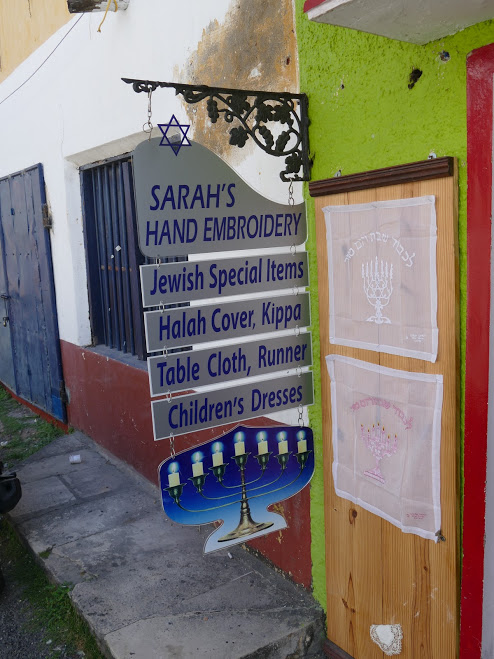
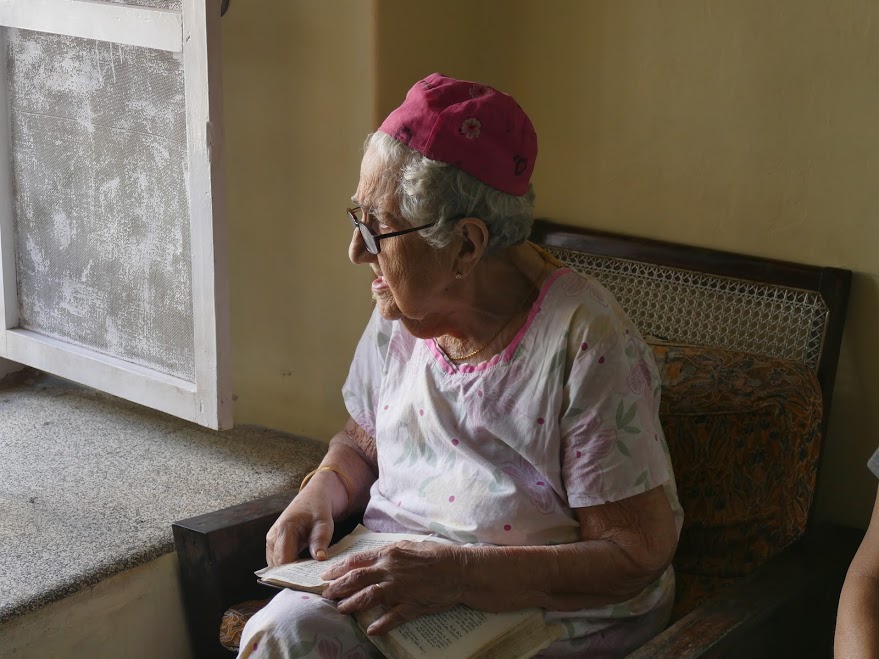

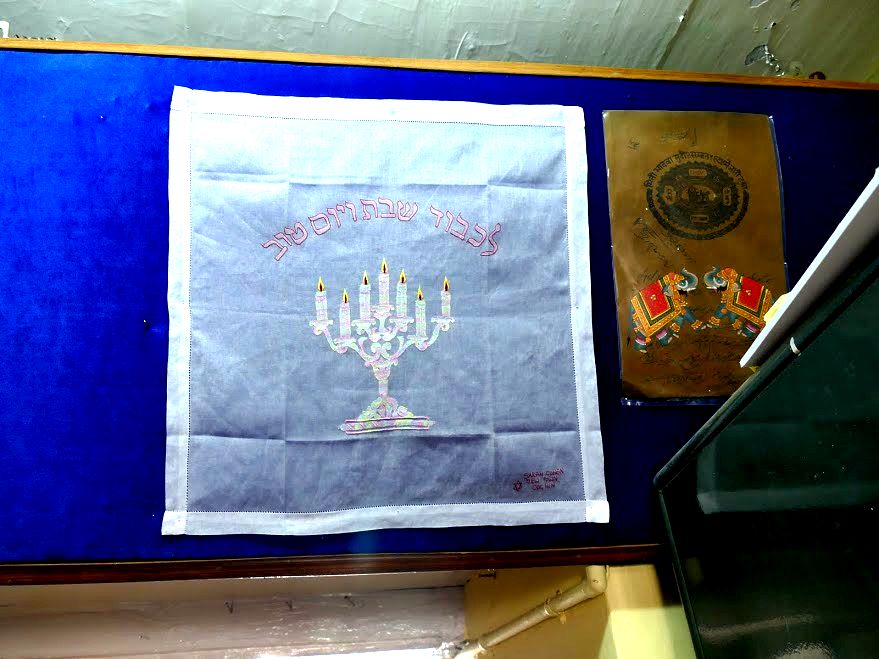
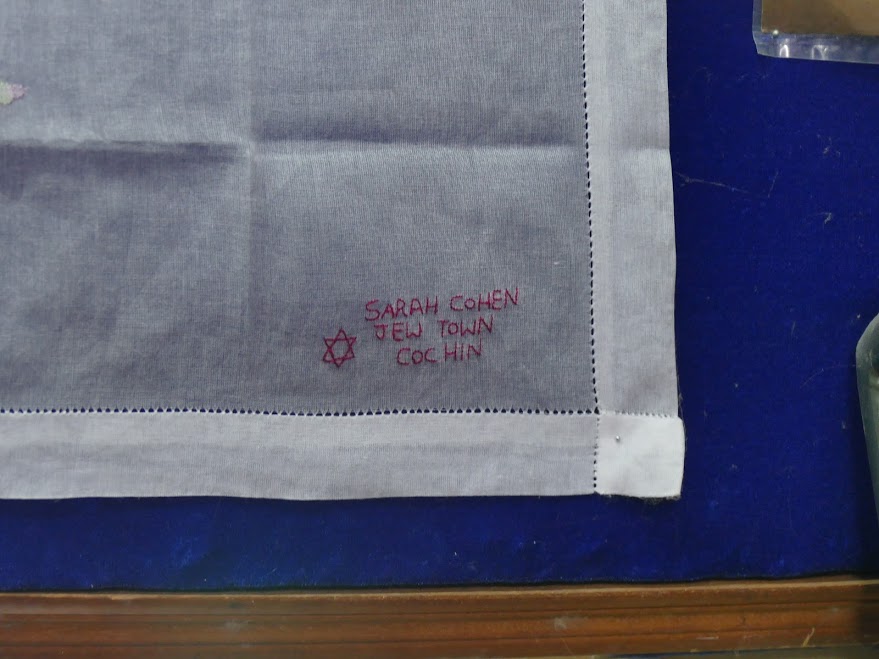
Labor Day
On Labor Day, it’s important to note that the Hebrew expression for work, Avoda, also means worship.
As Rabbi Michael Strassfeld puts it: Avodah connotes service. (It is also the word for slavery, which is involuntary service.) Work is not only a necessary part of life, it is a form of service to the world, to the rest of humanity, and to God. We are meant to be of service, to be partners with God in the ongoing creation of the world. Yet even as we serve God, we also serve our fellow human beings.
I’ve written regarding my own profession:
It is no coincidence that the Hebrew word for work, avodah, is also the word for worship. Our work is nothing less than our supreme offering to God, whether we are a rabbi, doctor or welder. Each of us must try to discern the cry of the times, perceive this mission and act on it. I see my task as being analogous to that of the ancient biblical prophet, of whom Heschel wrote, "He is neither a singing saint nor a moralizing poet. His images must not shine, they must burn."
Happy Labor Day, Happy Elul (we can now officially begin wishing one another a sweet new year) and Shabbat Shalom!
Rabbi Joshua Hammerman




